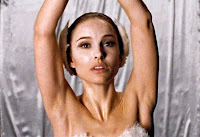 The best thing about The Hangover Part II is that it provides us with an appreciation for just how extraordinarily clever and well structured the original was. Think about the premise of the 2009 film (group of guys go to Vegas, drink, wake up the next morning and can't remember anything that happened) and how simple and unimaginative it would sound to you if someone was explaining it without any of the trailers for visual support. Even the title doesn't suggest anything special. Your expectations would have likely landed on the same level of achievement where Part II sits. It is an example of the trap of mediocrity that Part I could have easily fallen into but instead miraculously excelled beyond our wildest imaginations.
The best thing about The Hangover Part II is that it provides us with an appreciation for just how extraordinarily clever and well structured the original was. Think about the premise of the 2009 film (group of guys go to Vegas, drink, wake up the next morning and can't remember anything that happened) and how simple and unimaginative it would sound to you if someone was explaining it without any of the trailers for visual support. Even the title doesn't suggest anything special. Your expectations would have likely landed on the same level of achievement where Part II sits. It is an example of the trap of mediocrity that Part I could have easily fallen into but instead miraculously excelled beyond our wildest imaginations.The obvious issue is that we're watching the same story unfold with main points of interest running parallel to the first movie. There's the set up where our characters can't remember anything from the night before and they are missing 16-year-old Teddy, who they were suppose to be spending time with simply roasting marshmallows. Immediately they think of the roof, but it doesn't turn out to be that easy (surprise!). They embark on their journey and from there you don't even have to predict what happens because a prediction requires some degree of uncertainty. You can just take the original, which you've watched 10 times already, subtract the tiger, the baby and the cop car, then add a monkey and one interesting car chase sequence and you've got your movie.
I'm not even ashamed to give away certain plot points, like Stu finding himself unwillingly being unfaithful to his fiance with a stripper or Alan revealing that he was the one to accidently drug everyone, because the exact same events already happened the previous time! Speaking of the character Alan, don't expect him to be the comedic hinge this time around. In Part I, his naivety could be relied on for some of the best laughs you can get from a movie because we knew that he didn't know any better (as Stu aptly put: "Don't the beard fool you, he is a child!"), but on this go around he comes off as a jerk most of the time and it taints any of the humor. Chow is another phenomenally entertaining character who is simply stretched thin. Ken Jeong may be brilliant as the character but the script doesn't match up to his delivery.
What's more is the filmmakers even used Bryan Callen, who played Eddie in the first film ("They shot Eddie!"), as an entirely different, and much less memorable, character named Samir. Doesn't that violate some sort of physical law? Just because the setting is in Bangkok doesn't mean it's another universe where people can appear as someone different.
Anything fresh about The Hangover Part II is far and few between. It violates our suspension of disbelief by asking us to believe these characters went through this event twice. It fails to not only do much of anything new, but it fails miserably at the exact same tricks that worked so well before. For instance, in the latter half of the movie, Stu proceeds to serenade us again with a summary of their plight but his lyrics have followed suit with the rest of the writing. The tagline recited by several characters states that "Bangkok has them now..." and for all I'm concerned it can keep them.





